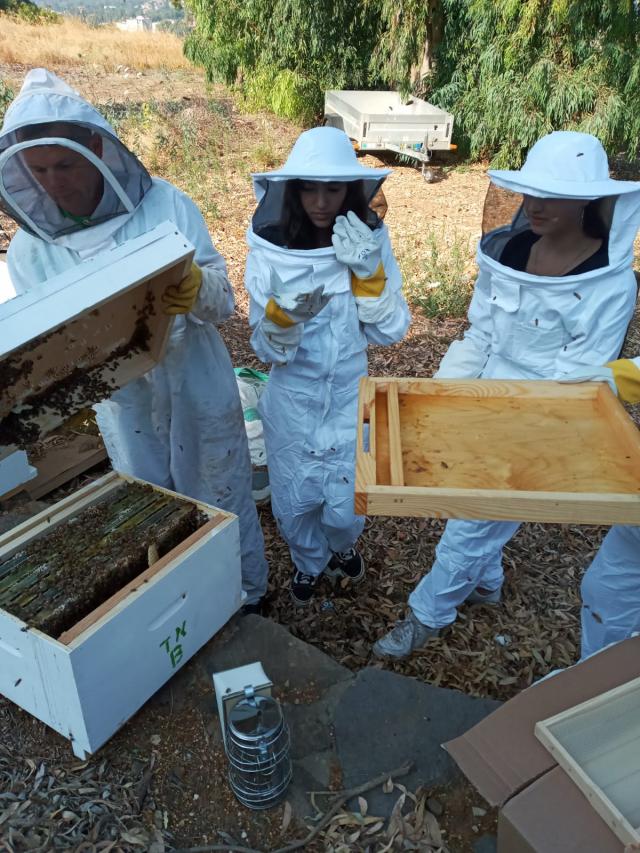About Open SchoolingWhy Open Schooling?
Testimonials Open Schooling

Student's perspective
Within project SALL (Schools as Living Labs) students worked with professionals they hardly knew. Elin Geerling, student at Caland Lyceum in Amsterdam, talks about what is it like for a 13-year-old to work with adults.

Institution's perspective
Le Dôme, a French cultural centre dedicated to research and participatory innovation, switched from the traditional approach to the living lab approach. Lab manager François Millet talks about what this means for their activities.

Teacher's perspective
In the SALL project (Schools as Living Labs), students from the ORT Danciger school in Kiryat Shmona (Israel) develop solutions to assist beekeepers and the general public with challenges related to bees. They learned an important lesson by being beekeepers themselves for a day. Their teacher Magi Mualem talks about the benefits of this approach to learning.
Open Schooling Navigator
This Open Schooling Navigator is your guide in the world of Open Schooling. It is part of a mix of actions, tools and resources open for you to join, use or attend and to support start Open Schooling.
Learn more about how this Open Schooling Navigator can support you or check out the toolkit, open schooling hubs and online course following the links below.
Other support materials & activities
Toolkit
We provide information packs for teachers and school leaders, with information on open schooling, the benefits of such a practice and how you can begin exploring open schooling practices within your school/ community. At the moment the toolkit is available in English only.
Open Schooling Hubs
Mid 2022 national Open Schooling Hubs have started in 10 countries. Hubs act as educational incubator encouraging schools to transform into open schooling environments and spaces of community wellbeing. The Open Schooling Hubs are the main contact point for Open Schooling in their country, and act as supporters and facilitators offering training and regular meet-ups for teachers and other educators.
MOOC
We offer a Massive Open Online Course (in English) to help you choose and build your own open schooling learning scenarios. The MOOC will connect teachers and educators with various levels of experience in Open Schooling. The course will run for a period of 4 weeks during the 1st semester of 2023 and will remain available afterwards.